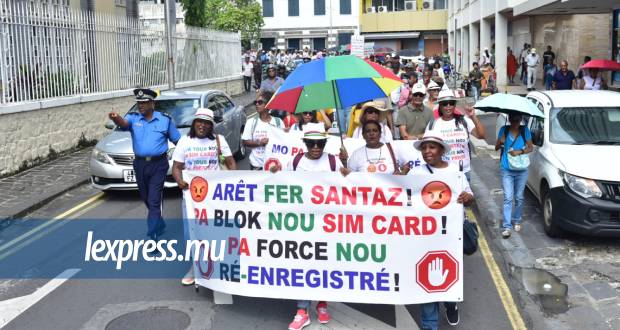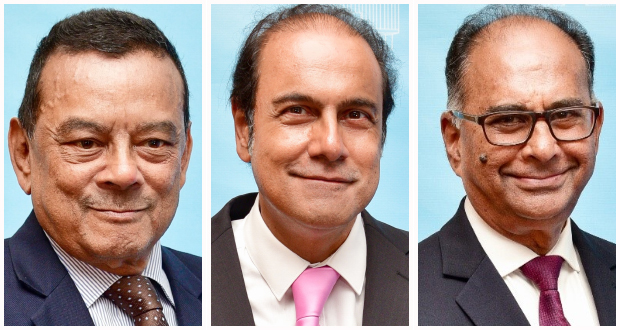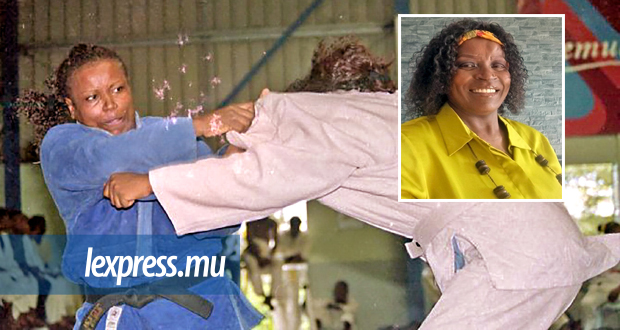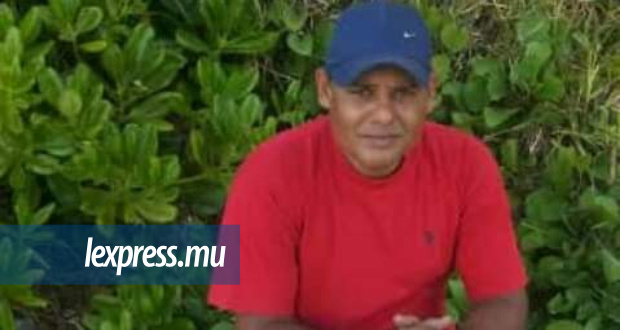Publicité
Chagos: pourquoi les Maldives doivent soutenir Maurice
Par
Partager cet article
Chagos: pourquoi les Maldives doivent soutenir Maurice

Les Maldives s’alignent sur la position de nombreux pays, principalement africains, qui ont décidé de reconnaître la souveraineté de Maurice sur les Chagos.
La décision de Malé de soutenir la revendication mauricienne sur l’archipel des Chagos marque une rupture “intelligente” de la politique étrangère des Maldives et consolide le dossier de Port-Louis. C’est ce que fait ressortir le Maldivien Mimrah Ghafoor, un spécialiste des relations internationales, qui officie aux Nations unies, dans une analyse publiée en début de semaine dans la revue diplomatique The Pulse.
Depuis août 2022, le président des Maldives Ibrahim Solih a précisé la position de son pays par rapport aux Chagos dans une lettre envoyée au Premier ministre mauricien. “The Maldives has announced its decision to vote in favour of Mauritius in the dispute concerning the Chagos Islands. Attorney General (AG) Ibrahim Riffath announced the decision at the oral proceedings in the dispute concerning the delimitation of the maritime boundary between Mauritius and the Maldives in the Indian Ocean, at a Special Chamber of the International Tribunal for the Law of the Sea.”
Auparavant, les Maldives faisaient planer le flou sur le contentieux territorial. “Considering its proximity to the Chagos Islands, Maldives’ primary concern has always been upholding its claims within overlapping Exclusive Economic Zones (EEZs) and thus keeping access to rich fishing grounds, benefitting an industry that accounts for two-thirds of the country’s exports”, souligne Mimrah Ghafoor. En Etat pragmatique, les Maldives ont toujours négocié avec quiconque pouvait agir dans ses intérêts immédiats, indépendamment des principes de décolonisation, “maintaining no consistent principle”.
Sur le plan local, la décision de Solih de se ranger désormais derrière Maurice a été fortement critiquée. Ses opposants politiques allèguent que ce choix est contraire aux priorités du peuple des Maldives et aux intérêts des principaux partenaires internationaux. Cependant, comme la pression des instances internationales augmentait sur la Grande-Bretagne pour retourner la souveraineté des Chagos à Maurice, les Maldives ont préféré changer leur fusil d’épaule. C’était un choix stratégique, insiste Mimrah Ghafoor : “To keep equivocating on whether it recognizes Mauritius’ claim would jeopardize Maldives-Mauritius bilateral relations and put Maldives at odds with international law and global opinion at a time when it is trying to expand its multilateral outreach.” Raison pour laquelle les Maldives ont réalisé qu’il fallait brasser large dans le concert des nations au lieu de satisfaire des besoins purement bilatéraux. “In 1992, Maldives implicitly conceded the U.K.’s sovereignty over the archipelago when Malé negotiated with London to demarcate the EEZ between Maldives and Chagos. But in 2010, Maldives issued a Joint Communique with Mauritius protesting the U.K.’s unilateral authority to declare the area around Chagos a Marine Protected Zone, banning activities such as fishing. Then in 2019, only three years prior to the government’s new position, Maldives voted against General Assembly Resolution 73/295, which urged the U.K. to return Chagos to Mauritius”, rappelle l’analyste pour illustrer les zigzags des Maldives au fil du temps; zigzags qui ont été critiqués par les pays du Sud, en particulier ceux du continent africain. En se rangeant derrière Maurice, les Maldives souhaitent aujourd’hui s’aligner sur le droit international et l’opinion globale, tout en réparant les relations de bon voisinage au sein du bassin indianocéanique.
Mais si les Maldives marquent des points sur l’échiquier international, sur le plan local, les attaques fusent. Le speaker et ancien président Mohamed Nasheed ne mâche pas ses mots : “Maldives itself has a historic claim on Chagos and that the government has no standing to concede it to another country.” Cette critique est aussi soutenue par le prédécesseur de Solih, Abdulla Yameen Abdul Qayoom. “These criticisms are best ascribed to the political rhetoric of an election season, with the presidential elections set for September 2023. Yameen is leading the opposition and Nasheed is challenging Solih from within the ranks of the president’s own Maldivian Democratic Party (MDP). During their respective administrations, neither Nasheed nor Yameen pressed a dubious Maldivian claim on Chagos, based on vague historical accounts of interactions between Maldivian seafarers and communities in Chagos.”
En termes de pression internationale, les regards se tournent surtout vers la Grande péninsule qui a tendance à considérer l’océan Indien comme l’océan de l’Inde. D’autant que l’Inde a des liens ancestraux avec Maurice et un intérêt stratégique sur Agalega, afin de contrer la progression chinoise dans les eaux de l’océan Indien. “Given India’s own history, New Delhi is also sympathetic to Port Louis’ position against the U.K. based on anti-colonial principles. India is wellpositioned to influence the Maldives’ decision: it is the Maldives’ largest and most powerful neighbor, and Solih’s administration maintains an “India First” foreign policy. However, reducing the government’s decision to this alone neglects the wider context – one in which there is increasing international recognition of Mauritius ’ strong claims on the Chagos Islands”, insiste Mimrah Ghafoor.
Publicité
Les plus récents






